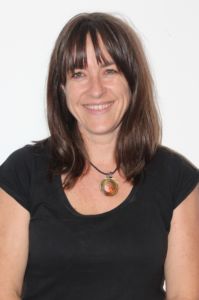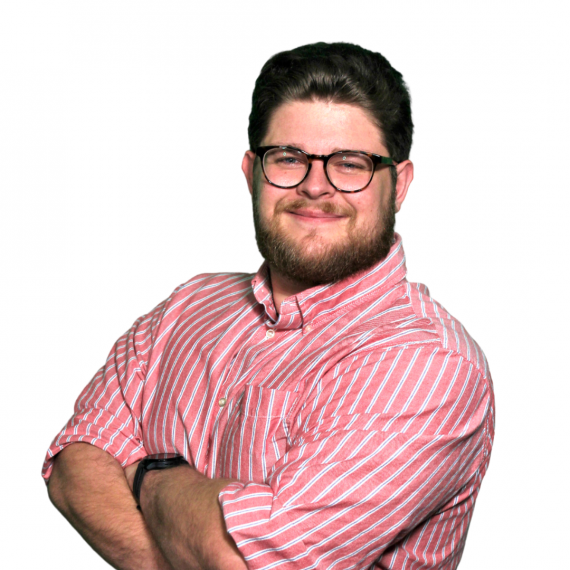Every year, Humentum announces Operational Excellence Award winners to celebrate the vital role of colleagues who positively impact the global development sector. Dr. Petra Kruger, Senior Technical Advisor at the Aurum Institute, received an award last year for her work designing and delivering a unique Management Development Program (MDP) to equip Primary Healthcare Facility Managers with practical skills in managing and running a clinic or health center.
The South African health system is complex and a network that is still directly affected by the legacy of apartheid. Wealthy citizens have access to top-of-the-line private health care across the country, while 80% of the population is dependent on government-run public services, called clinics.
South African health clinics are scattered and isolated. Nurses are burdened with more than they’ve been trained for in a hospital setting—they diagnose, treat, run, and manage entire operations. Consequently, when one of these nurses is promoted to clinic manager, often without any support, it quickly becomes a problem. Dr. Kruger’s MDP is designed to address that gap in knowledge and training and prepare these individuals to oversee a full clinic successfully.
Below, Humentum’s Marketing & Communications Officer Nick Shereikis asks Dr. Kruger to reflect on her experience one year later.
Dr. Petra Kruger: The South African health structure is a complex one. The apartheid legacy of a dual health system with a greatly disproportionate spread of resources between the private and public sectors relative to the populations they serve presents a current-day challenge that is well described in a Lancet series on health in South Africa. If you get ill, you go to your general practitioner, I presume, to a doctor. In wealthy countries, that is your first port of call. But there are not enough doctors to go around in lower-income countries, so public health services are dependent on nurses that generally operate out of government-run clinics.
And so the way you and I go to a doctor’s practice, 80% of the South African population—that’s like 40 million people—go to a clinic. There are 3,500 of these clinics scattered around South Africa; they are just hives of activity. Nurses are trying to take on a scope of work that is technically very difficult because it’s beyond just basic nursing that they’ve learned in a hospital setting. They have to diagnose, treat, run, manage the whole setup, and they do this in isolation all over the countryside. If they have a patient that’s beyond their capability, they can refer them to the closest government hospital or book them for a doctor’s consultation if there is a roving doctor that visits the clinic.
What happens is one of these nurses gets promoted to clinic manager, and there’s no on-site support; the local district office and hospital are miles away. They’ve been taught how to do nursing, but nobody’s teaching them how to keep that roof over our heads. If you look at the six building blocks of health systems, your service delivery is number one, but what about the people you need to do it? What about the financing? What about the supplies, infrastructure, etc.? And they haven’t been taught any of that.
Nick Shereikis: Could you talk about that lack of support or initial training for these positions. How did you go about developing this program?
Dr. Petra Kruger: I found that entry-level managers can’t necessarily take abstract theory and apply it in their setting. And when I looked at the Department of Health managers, they needed not just the soft skills of leadership but also what I call hard skills. Government services have a lot of structured systems—they have a performance management system that is very detailed and complicated, and you’ve got to put it into place. And there are set procedures for how you request a tap to be repaired, and if you don’t know how to do it, that tap never gets repaired, and you don’t have clean running water. These are hard skills—knowing the actual standard policies and procedures as a manager in this huge organization that you find yourself in.
It became evident that we needed to develop a customized course that teaches the manager the standard procedures you’re required to do in their specific setting. And yes, “Let’s teach you some of the soft leadership skills—how do you lead a team? How do you motivate?
And secondly, it was the fact that many training courses send you to a course in the classroom for five days, and then they say, Off you go, do your thing. Learning something new is not that easy. You train people, and you send them out—they’ve learned a lot of new knowledge—but translating that knowledge into a skill set with practice is not an easy transition to make. You’ve got to couple the training with mentoring.
So, we created this program, brainstormed, took best practice theory, looked at local practices in that setting, and built up this one-year curriculum. And I had a cadre of experienced health practitioners that are also experienced managers. Then we started aligning it with educational standards; how do you ensure that the program is aligned to minimum best practice by global standards for general management to align it to a specific qualification? I can’t believe how much I’ve learned about adult education in creating this over the years!
Nick Shereikis: It sounds like It wasn’t easy to start this program. I’d be interested in hearing about any significant challenges you’ve faced in implementing this program.
Dr. Petra Kruger: One of the biggest challenges I’ve had is that the model we developed is expensive. If you compare that to a quick fix course—you simply cannot compare the expenses. To have trainers going out to remote clinics, showing you how to implement these skills, mentoring you telephonically, virtually, in order to complete critical tasks you need to do as a manager that takes time. And the trainers are expensive because they’re highly qualified; you can’t just take some entry-level trainer and expect them to train or mentor a manager. PEPFAR has been very kind in absorbing those costs, but in the Western Cape, where the provincial Department of Health contracts us directly, the cost has been a bit of a challenge.
Nick Shereikis: How did receiving Humentum’s OpEx Award impact your work?
Dr. Petra Kruger: Getting that kind of publicity and just highlighting some of the successes that we’ve had around the program has done a lot to build the program’s credibility. Over the years, I’ve tried to collect evidence—how can we show that we’ve improved the health system by training these managers? The problem with that kind of evidence is that to [establish] causality that input A caused output B, you need to have a very direct line of sight. And the problem is that you’ve got multiple inputs. Somebody comes along and teaches all the clinic staff how to treat an HIV patient; our data team has improved how you collect health information; and pharmacists ensure that your stock control is better. So many inputs from different Aurum support programs collectively to achieve a better outcome. But you can’t necessarily say that this training program was directly linked to that outcome.
We rely on anecdotal evidence—the large number of managers we’ve trained that get promoted because they now know more than the next management level. It’s evidence of their capabilities—being seen—and they progress in their careers. It was that kind of public recognition for work that gets done very much in the background the whole time because we’re not directly affecting HIV and TB results. We’re often sort of like the last person on the block to give the report. Nobody discounts what we’re doing as unimportant—but it just really helped to escalate and highlight again how much it is an essential component of health system strengthening. For that, I’m just eternally grateful.


